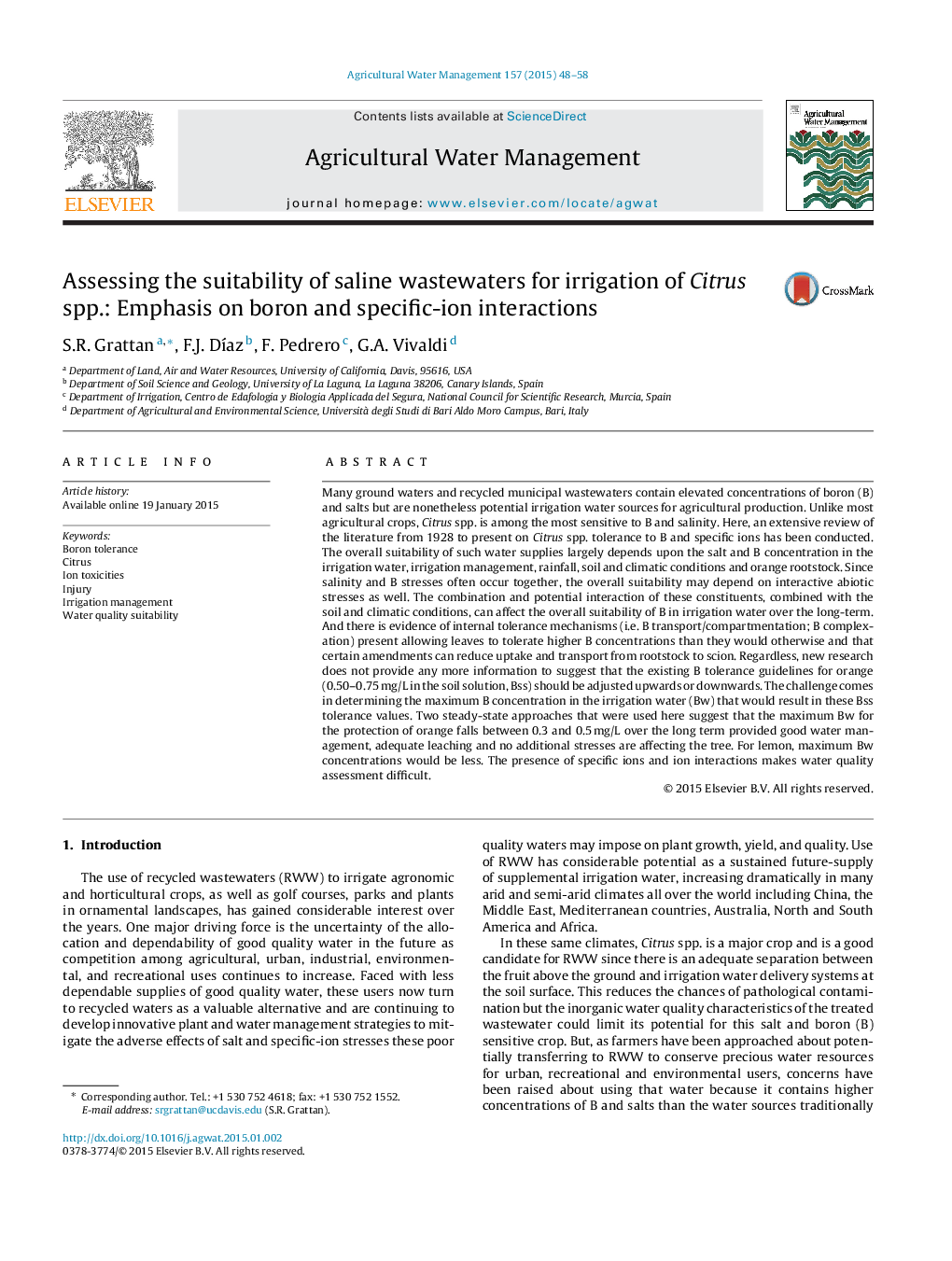| کد مقاله | کد نشریه | سال انتشار | مقاله انگلیسی | نسخه تمام متن |
|---|---|---|---|---|
| 4478488 | 1622922 | 2015 | 11 صفحه PDF | دانلود رایگان |
• Review of world-wide recycled waste water studies on citrus.
• Literature review on citrus tolerance to salinity, specific ions and boron.
• Role of scion and rootstock for controlling tolerance to sodium, chloride and boron.
• Leaf boron concentrations, toxicities, symptoms and interactions.
• Boron tolerance guidelines including relations between soil solution B and irrigation water B.
Many ground waters and recycled municipal wastewaters contain elevated concentrations of boron (B) and salts but are nonetheless potential irrigation water sources for agricultural production. Unlike most agricultural crops, Citrus spp. is among the most sensitive to B and salinity. Here, an extensive review of the literature from 1928 to present on Citrus spp. tolerance to B and specific ions has been conducted. The overall suitability of such water supplies largely depends upon the salt and B concentration in the irrigation water, irrigation management, rainfall, soil and climatic conditions and orange rootstock. Since salinity and B stresses often occur together, the overall suitability may depend on interactive abiotic stresses as well. The combination and potential interaction of these constituents, combined with the soil and climatic conditions, can affect the overall suitability of B in irrigation water over the long-term. And there is evidence of internal tolerance mechanisms (i.e. B transport/compartmentation; B complexation) present allowing leaves to tolerate higher B concentrations than they would otherwise and that certain amendments can reduce uptake and transport from rootstock to scion. Regardless, new research does not provide any more information to suggest that the existing B tolerance guidelines for orange (0.50–0.75 mg/L in the soil solution, Bss) should be adjusted upwards or downwards. The challenge comes in determining the maximum B concentration in the irrigation water (Bw) that would result in these Bss tolerance values. Two steady-state approaches that were used here suggest that the maximum Bw for the protection of orange falls between 0.3 and 0.5 mg/L over the long term provided good water management, adequate leaching and no additional stresses are affecting the tree. For lemon, maximum Bw concentrations would be less. The presence of specific ions and ion interactions makes water quality assessment difficult.
Journal: Agricultural Water Management - Volume 157, 31 July 2015, Pages 48–58
